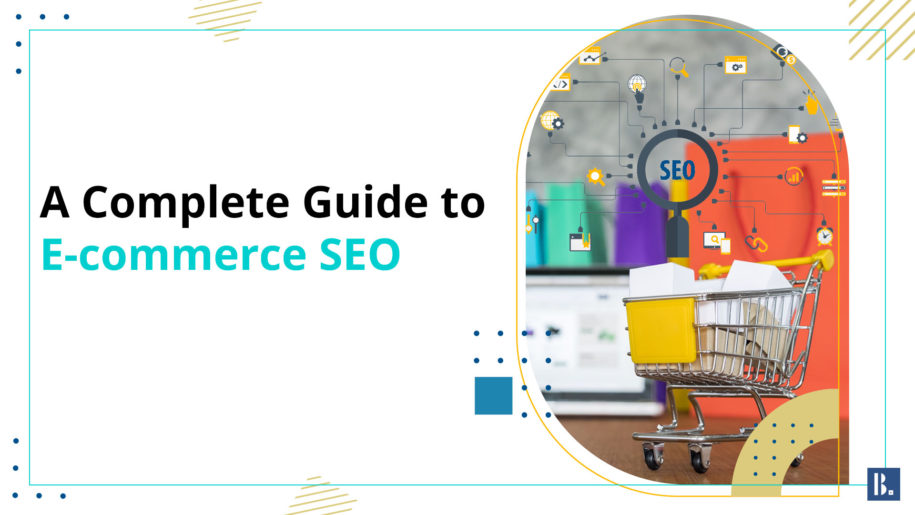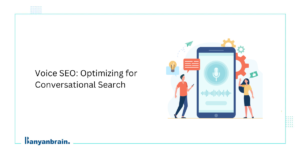Follow our step-by-step guide on e-commerce SEO for your website to increase your website traffic and drive more sales.
By now we are pretty sure that you know all about SEO and how it means the process of optimizing your website and content so that it ranks higher on the search engines. SEO plays a very important role in the reach of your business, eventually resulting in brand awareness and an increase in sales conversions.
It is one trick that every business, new or old, big or small, needs to adapt in order to survive and be successful.
E-commerce SEO on the other hand differs from traditional SEO in reference to the basic approach. It is the process of making your online store more visible in the search results. If someone searches for the products or services that you are offering, you need to rank as highly as possible in order to get more organic traffic, thus improving the lead generation. These amplified rankings are that is one of the key reasons for the improvement in the brand awareness of a particular website.
E-commerce SEO involves a plethora of strategies and online tools that can be used effectively by a business to optimize the website and specific web pages as well. It improves your online store’s visibility in the SERPs by getting more organic traffic.
What is so important about SEO for E-commerce?
Increasing brand awareness
Brand awareness is a necessity for all e-commerce sites. And for that brand awareness, the website needs to have a proper SEO strategy. Ranking high up on the search results page when a user for the products or services related to your brand helps them to know more about who are and what you have to offer.
Enrichment of content
Content optimization yields significant improvements in the traffic. The content, including your website content, product offerings, blogs, buyers’ guides, and brochures, should have original and engaging content and be optimized for the search engines by using high-ranking keywords.
Better user experience
When a customer has a good user experience, it helps in the awareness and increase in conversions for your e-commerce website. SEO assists businesses to understand the target audiences and thus helps in formulating a result-driven SEO strategy according to the desires of your site visitors. Providing a worthy user experience is also a ranking factor for most search engines as the more traffic you get, the more it classifies your website as a relevant page.
Escalating remarketing audiences
Once you have shoppers on your visitors browsing through your products and services via organic searches, you can then extend your focus to remarketing campaigns. You can display your product ads to people who have visited your site previously which reminds them about you and brings them back for more.
How to develop an E-commerce SEO Strategy?
As we have seen previously, SEO is critical to drive more organic traffic, improve lead generation which eventually escalates the sales conversions. If you want your e-commerce website to thrive, then you need to follow this procedure to understand the know-how of an e-commerce SEO strategy.
Perform a website audit
Before you contact your digital marketing agency and start making plans on how to create an effective SEO strategy for your e-commerce website, you need to conduct thorough research on your existing site performance, so that can then make certain improvisations in what is going wrong, and which strategies should remain.
A website audit is a starting point to fix pre-existing issues so that you can start with the creation of your SEO strategy.
Keyword Research
The first and foremost task that needs to be performed is to determine what exactly are you conducting SEO for. This means that a business needs to identify the highly ranked terms that people search for the most, related to their products or services. This is called keyword research. This is the basis for the success of all SEO advertising.
Concerning e-commerce, the business should make sure that they should give more preference to the keywords that depict a buying intent, referring to the usage of commercial keywords, which leads to an increase in the shoppers coming to your website.
One should make sure that they include a healthy balance of short and long-tail keywords which help the website to reach a higher number of online searches and appearing in relevant search results.
On-Page Optimization
Once you have full knowledge about the keywords that should be included in your content to rank high up in the SERPs, then you can start implementing those findings by doing on-page optimization for your e-commerce website.
On-page optimization refers to developing, formatting, and structuring the copy and other on-page elements of your web pages in an attempt to improve their ability to rank for your target keywords.
The basic elements that need to be optimized for effective SEO results are:
- URL Structure: URL structure is a ranking element and highly affects the engagement on your website. The longer the URL, the lower the rank. Your URL should include one core keyword and include a short description of the product on the corresponding webpage.
- Page Titles: They are a critical ranking factor for search engines. Ensure that you create a strong, keyword-rich title tag for your page so that the search engines can easily understand what that particular webpage is all about. Keep your title tang under 60 characters.
- Meta Descriptions: The meta description should be short, concise, and captivating. Well-written and relevant meta descriptions help the users to know about what page they are about to visit. Usage of keywords is preferred while writing these.
- Website Body Content: The content of the website is of utmost importance. You need to make sure that your content is unique so that Google can recognize your content are original and relevant and rank you higher up in the SERPs. Your content also needs to be relevant and engaging so that your potential clients want to stay on your website and get more information about the same. Your content also needs to be sharable. This means that your website content should include certain keywords and elements which are linked to other websites and intrigue the visitors to share it with their family and friends.
- Page Speed: Page speed is another integral ranking factor for your e-commerce website. In today’s time, the audiences are impatient and they want instant solutions. The bounce rate plays an important role here depending on the page loading speed as users tend to bounce off to another website if it takes more than three seconds to load. To make your website load faster, every e-commerce company needs to optimize their images with smaller files so that it takes a lesser amount of time for the website visitors to load your website.
Optimize your product pages
The product pages are the most fundamental element of an e-commerce website. The name of the product, images or videos related to, the product description, all plays an important role in determining the rank for your website.
Some specific elements regarding product pages that any e-commerce business should work on while optimizing their website are:
- Product Name: The name that you plan on giving each product is vital, as it also appears in the URL and the SEO title of your product page. Ensure that you include core keywords and the general category of your product while deciding its name. Another additional benefit is that when your product is shared on certain social networking platforms, that particular keyword acts as the title of that product post.
- Image Optimization: Images are important for your products page as the potential customers prefer buying from websites that offer different angles of image content about the product on the website. Optimizing for images is also key because it helps in the SEO process as well. For that, you have to make sure that every file name of the images that you upload on your website includes the product name and core keyword so that it increases the chances of your product images being more visible in online searches.
- Video Content: Informative videos including basic information, how to use guide etc. helps your buyers to invest their trust in your website and make a buying decision with confidence.
- Customer Reviews: Customer reviews also help in brand building for your e-commerce website. Having positive as well as negative reviews about your products on your product pages give people the confidence that your business is legitimate and results in greater sales conversions for your business.
- FAQ Content: Every website owner should ensure that they include product-specific FAQ content about the products that are available for sale on your website. You can also have a specific page dedicated only to FAQs about your business, security, shipping, and return policies which makes the buyer trust your website.
There is so much more that goes into e-commerce SEO. Technical SEO, link building, etc., etc., etc. The list goes on. Although e-commerce SEO can feel a bit overwhelming at times, always remember that all you need is time and patience to develop an effective SEO strategy to increase your search engine rankings.
Here at Banyanbrain, a digital marketing agency offering e-commerce SEO solutions, we have a professional team of dedicated SEO specialists who work towards devising result-driven e-Commerce SEO strategies for your business and get guaranteed results.






